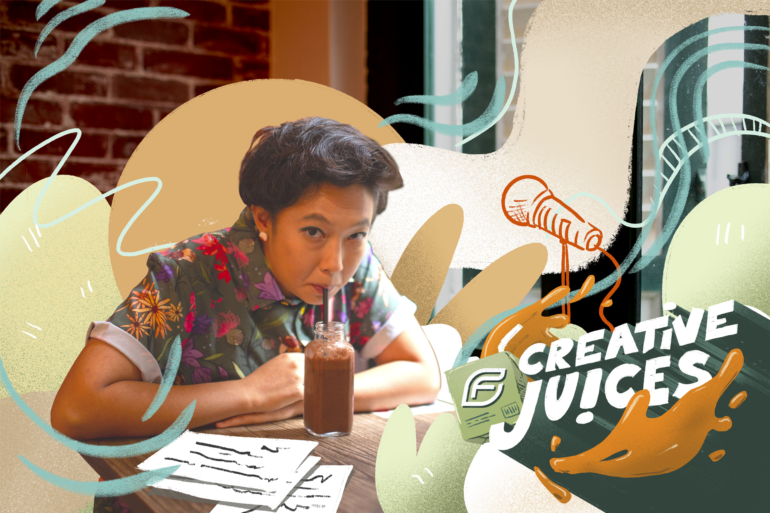In the first story of our Creative Juices series, we speak to 33-year-old Stephanie Chan, a.k.a Steph Dogfoot. A Singaporean poet, stand-up comedian and environmental activist, she discusses her views on writing, sustainability and all things eco.
It’s late morning as we meet Stephanie at Shake Farm HQ to get all juiced up. We exchange pleasantries and she tells us that she’s actually a regular at the joint which happens to be close to her office. Prior to meeting her, I’d heard some pretty cool things about her and was more intrigued when I chanced upon some of her poetry.
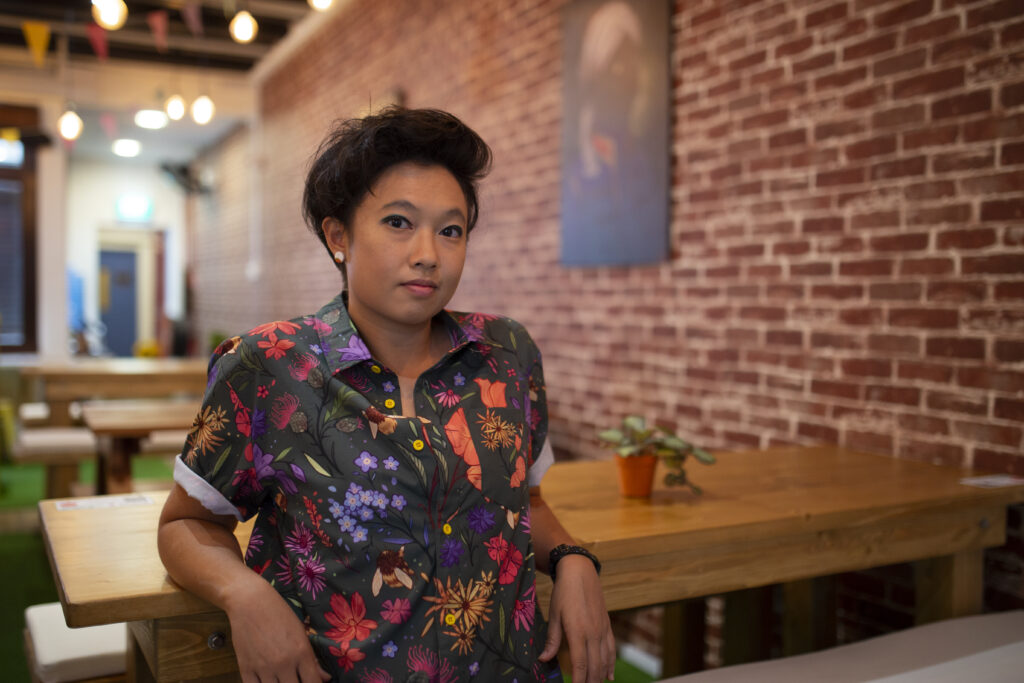
But it’s hard to put into words exactly what Stephanie does.
Yes, she’s a published poet. But she’s also a lawyer, educator, stand-up comedian, artist and environmental activist. Knowing all that, I just had to meet up with her to find out what keeps her going. We place our orders. She gets the chocolate mylkshake she’s been gushing about, I pick something with much-needed caffeine and we’re on our way.
“There are stories so much bigger than me in the soil beneath my feet, and when he speaks of how the forest is alive I think about how we still ask spirits for permission before we erect buildings back home.”
– excerpt from ‘A Protest Camp in a State Forest, Gomeroi Country’ by Stephanie Chan.
futr: Hi Stephanie, nice to meet you! We hear you’re been involved in some projects with environmental organisations here in Singapore. Could you tell us a little more about those?
Stephanie: Hi, sure! So I was a wildlife educator for students at the Singapore Zoo where I helped run camps and conduct public education, though I’ve recently left. During Chinese New Year last year for instance, I helped man a booth where we taught the public about rodents… since it was the Year of the Rat. (laughs) Apart from that, I also give tours of St John’s island and volunteer with the Raffles Banded Langur study group.
Raffles what now…?
Well, the Raffles Banded Langur is a new species of monkey that lives in the forest in Singapore. For the project, nature-loving citizen volunteers teamed up to find out what they could about these langurs. It was cool because they’d later be able to share what they’d learnt with their friends and let them know about the cause too.
Nice! It’s obvious you’re passionate about the environment. But I’m a little curious. When did your interest in nature start?
Hmm, I used to go on nature walks as a child because my family lived near the canal and nature reserve. My mother and I would walk through the fields at sunrise and look at all the plants and dew. And before I could even remember, my parents said I used to make them bring me to the zoo on weekends as well!
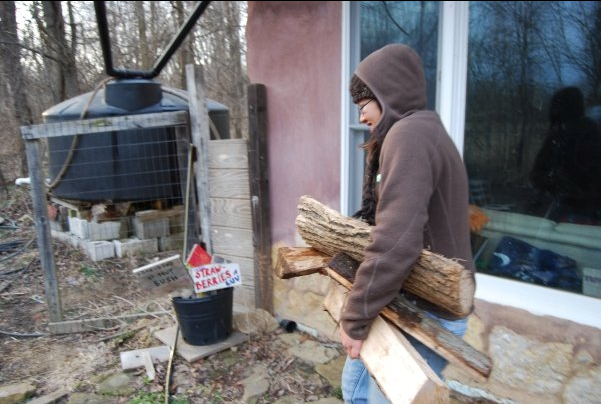
Sounds like a lot of fun! That love for nature must have driven you to pursue your Environmental Sciences degree overseas. Has being abroad in the US and UK given you a different perspective about things back home?
Definitely. It’s interesting because growing up I had a very specific idea of Singapore. I used to think that Singapore was very urban and the environment wasn’t a priority then. But… then I went to this really rural university in Ohio, in a town of about 2000 people. I did appreciate living in the countryside without distractions. But I also missed Singapore and how green it was.
And when I lived with my aunt in the suburbs there, I realised there’s no real concept of, “let’s go lepak at a coffee shop”. (laughs) Because it’s so out of the way, you’d need to drive a distance and plan to meet people at a restaurant or mall. So despite all the “rules” we’re known for, somehow Singapore felt less planned out and structured compared to that.
It’s interesting you say that. But apart from the greenery, do you think Singapore has become more sustainable over time?
I’m not sure if it has. But the important thing is that there are more people who are fighting for it to become more sustainable and questioning how we’ve been doing things. On an individual level, I feel like more people do seem to care about the environment. Many more people from my generation are using less plastic bags and straws. Even my Mum who’s in her 60s is concerned about things like that as well.
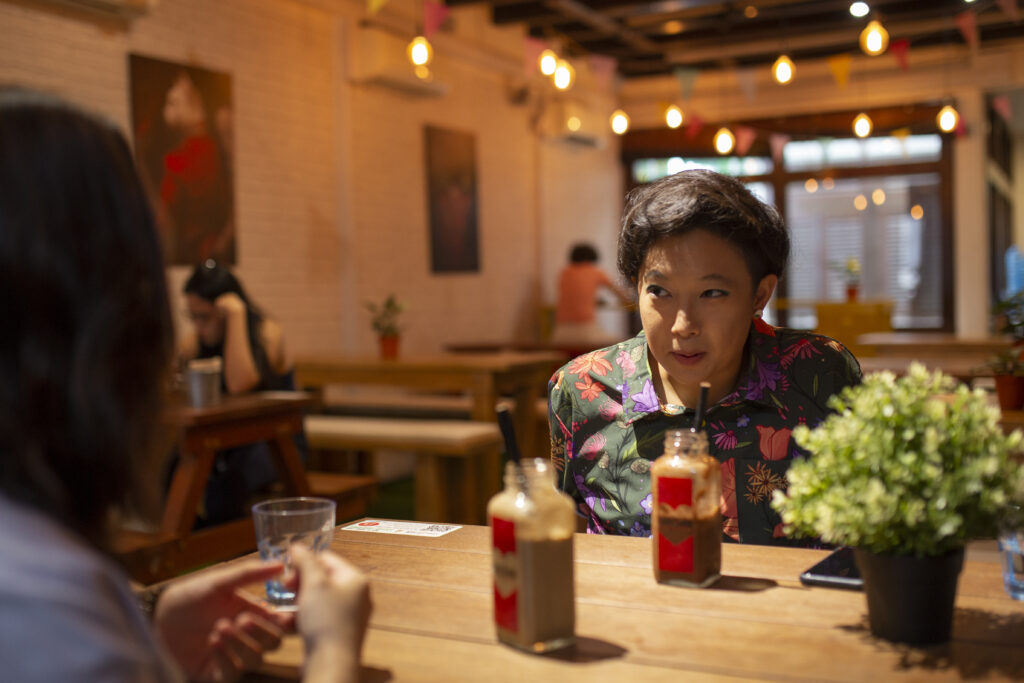
Do you think there’s a misconception that the older generation don’t care as much about the environment as the youth?
I’ve actually been told that I’m too old to get involved in climate change. (laughs) You see, it’s very easy to say things like “only the young people care about this” but it isn’t always the case. There have been environmental movements and activists fighting for change since the 60’s. The reason why we’re even having these discussions today is because the older generations have been trying to shift the conversation for ages.
So if people wanted to get more involved doing what they could for the environment, how would you recommend they make a start?
Get involved in local conservation efforts. NParks has a lot of projects you can volunteer for and it really does make you feel more involved by doing more on-the-ground work. There’s also a lot of value in educating yourself. If you’re confused about a topic, take the time to read up on what people are saying about it. There are groups like SG Climate Rally that have tons of good research. I think it’s very easy to sort of fall into despair when you think about climate change. But there’s more you can do than not.
“When the tidal waves start flooding large coastal cities like Sydney, LA, Vancouver it will not matter because there is still not enough lard in your 5 dollar plate of Hokkien Mee.”
– excerpt from ‘When the World Ends You Will Be Eating Hokkien Mee’, from Roadkill for Beginners by Stephanie Chan.
Let’s move on to your poetry. What made you want to start writing?
Well, I was always interested in it. I loved reading as a child and enjoyed writing. Also, poetry doesn’t take as long to write. (laughs) A lot of my inspiration comes from music, memories and personal experiences.
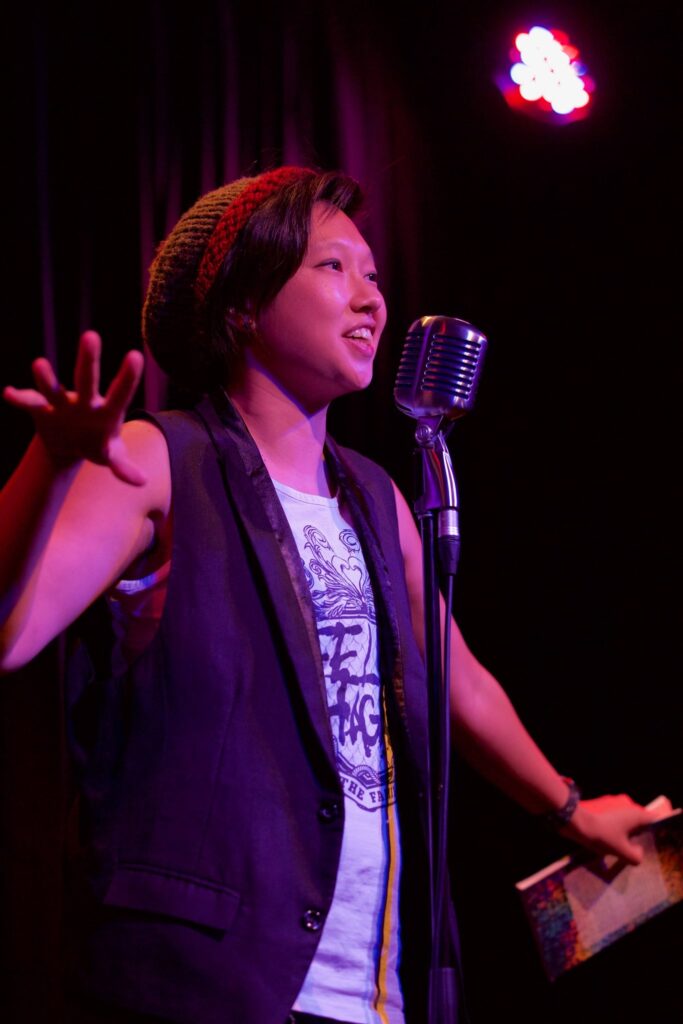
Nice. I’ve read some of your poems and there are a couple I’m pretty curious about, namely ‘When the World Ends You Will Be Eating Hokkien Mee’, and ‘Burning’. Could you tell us more about them?
Sure. I wrote ‘When the World Ends You Will Be Eating Hokkien Mee’ in 2011, and it’s actually one of the poems in my book, Roadkill for Beginners. At the time, I was very frustrated at the idea of consumerism, foodie culture and the behaviour of some Singaporeans who I felt were purposefully ignorant about things happening outside of the country. I think now, I do understand that preserving hawker food and local culture comes from a good place. So my take on the topic is now a lot more nuanced and I think it comes across in ‘Burning’.
In Burning you talk about the fires in the Amazon, and the forest fires in Singapore. And social media comes up quite a bit as well?
Yep, that’s right. So with Burning, there’s a sense of helplessness and that question of when something bad happens, what can we really do? Social media gives us a chance to do something whereas in the past, you’d read about something in a newspaper… and just feel bad about it. Now, you can connect to an organisation in Australia when a forest is burning and actually hear from people on the ground. I guess despite this, we still ask ourselves if just spreading awareness is really enough. But we have to remember that we cannot hope to save every single thing, and it really isn’t our job to do everything.
I agree. Speaking of your poetry collection Roadkill for Beginners, I have to ask – where did inspiration for that title come from? And who would this book appeal to?
Well… so a friend and I spent a few days cycling across the UK to an environmental gathering and he was adamant that we avoid spending money. Around the second or third night, we found a rabbit that had just been hit by a car… and he decided, hey free dinner! (laughs) So we cooked and ate it.
I think the book would appeal to most people. Whether you’re getting started on poetry or enjoy reading about travelling and living in different places.
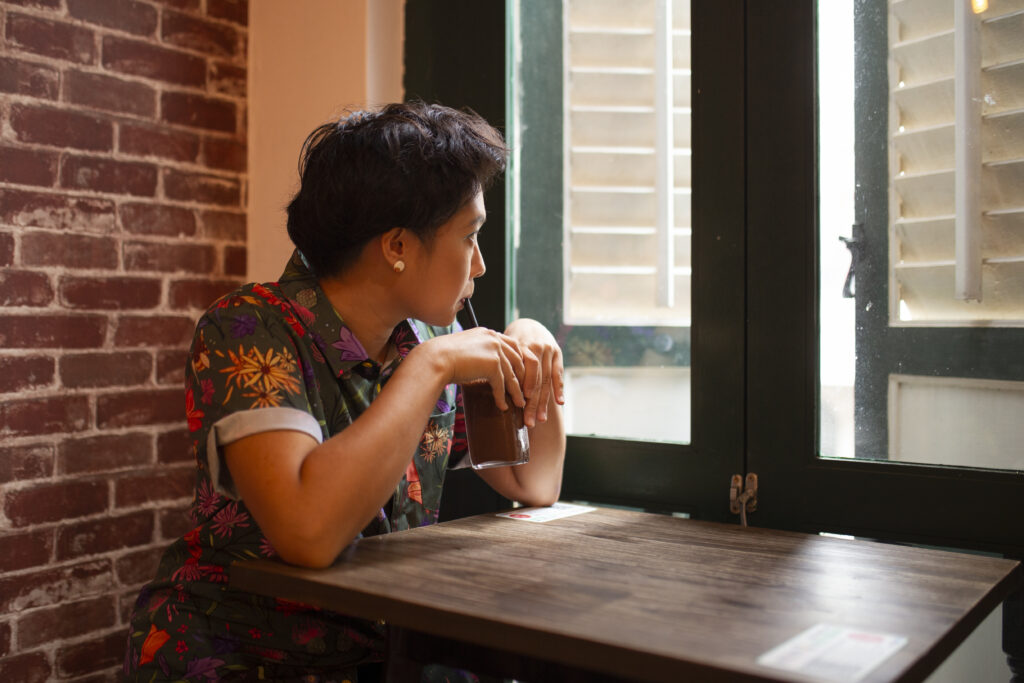
And to those looking to publish or perform poetry, is there any advice you could share?
Believe in your own message and don’t be afraid to take advice from those who have been in the game longer. More importantly, try not to get discouraged. When I was thinking of publishing a book, I thought I wasn’t ‘worthy’ of publishing one. Some people told me that it was hard, or that I had picked the wrong time. But I just decided to put out all my manuscripts and it got published! (smiles)
“We know how quickly
fires get out of hand
when no one pays attention.”
– excerpt from ‘Burning’ by Stephanie Chan.
Apart from writing poetry, what are some other ways you express yourself?
I also perform slam poetry, or spoken word poetry. I think it’s an exciting way poetry can be shared. And I do stand-up comedy as well.
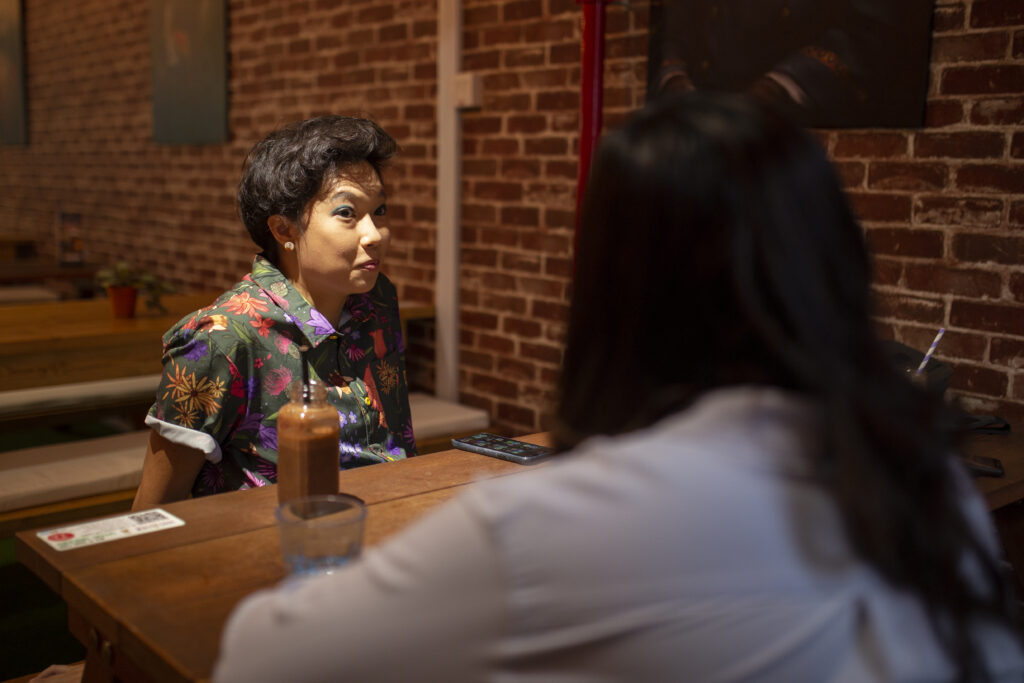
Wow, stand-up comedy? How did you get into that?
I mainly started when I got back to Singapore. When I was in the UK, I was doing slam poetry like 3 times a week. So when I got back, I was looking for more chances to perform so I started doing open mic nights. With the pandemic though, it’s getting harder for amateur comics to find avenues to perform.
Ah, that’s a shame. Are you working on anything else in the meantime?
I’m hosting a book launch in June that I’m really excited about! There’ll be more details on that available later, but for now, pre-orders for the anthology are available online.
“What do superheroes do when all the supervillains are dead? So he invents himself a brand new quest, he is sure he is not the last of his kind, there has to be something just beyond his sight.”
– excerpt from ‘Sang Kancil Crosses the Central Catchment Area’ by Stephanie Chan.
As we finish up our drinks, I realise how easy the conversation has been and how open Stephanie is with sharing her thoughts. Her story is inspiring and she’s friendly, down-to-earth and as passionate about her craft as she is about the environment.
It’s still puzzling to me how she manages to carve time out so seamlessly to work on her projects. But I suppose when you’re committed to doing something so meaningful and important, there is always enough time.
Get your copy of Roadkill for Beginners here or browse more work from Stephanie here.
Enjoyed this article? Read about how these students designed a sustainable world on Minecraft or how this plant mama created the perfect natural sanctuary at home.

